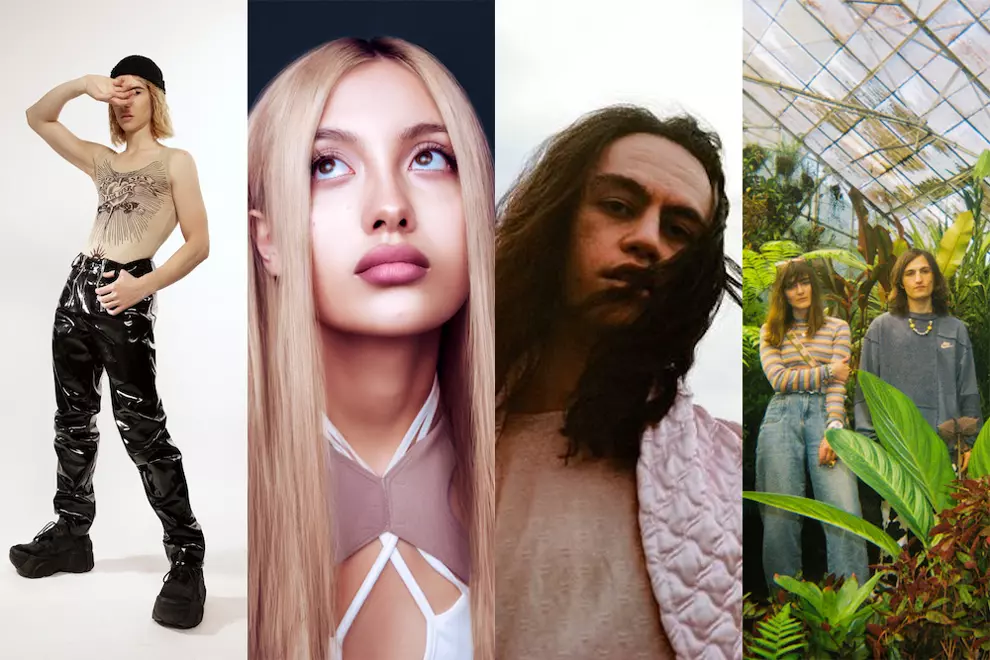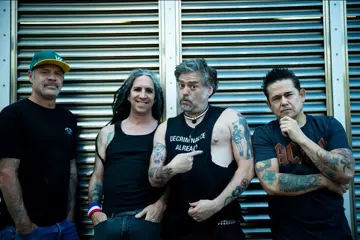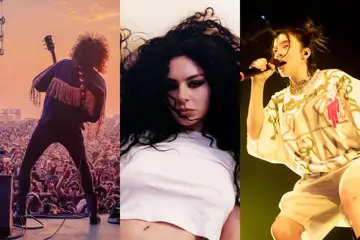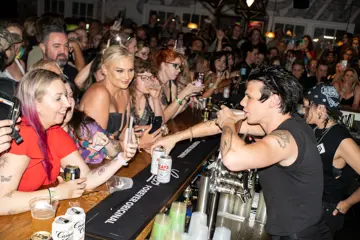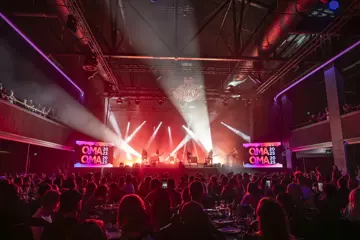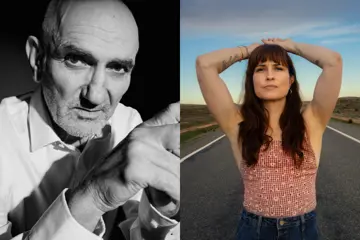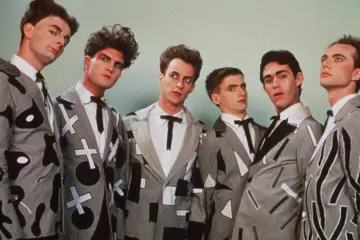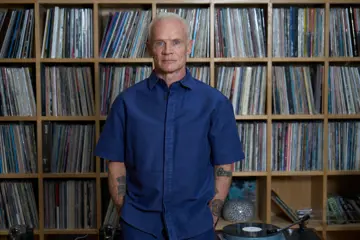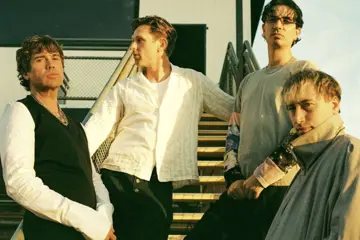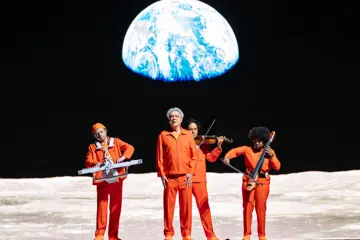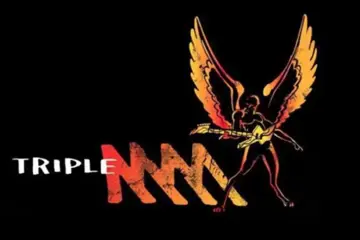The Australian festival season is building up to be beautiful, as a world of acts enter our shores for our biggest Australian summer of music for a very long time. The line up’s came with strong acclaim, with them featuring a wide range of diverse acts from a range of genres. There’s no doubt that right now Australia has a huge palette for dance music and hip hop music, with the majority of the international headliners coming from these worlds. Falls Festival took a huge dive into exploring dance music, hosting the likes of Peggy Gou, Mall Grab, Ben Bohmer, DJ Seinfeld, CC:DISCO!, Young Franco and Kaytranada just to name a few. Similar names are also touring across other festivals, with hip hop stars Amine, Rico Nasty, Lil Nas X, Denzel Curry, Aitch and more crossing our borders.
Between these two worlds sits pop music and the fringes that surround pop music. Another clear trend on these line ups is the extremely exciting world of alternative pop music that is emerging. Australian festivals aren’t afraid to take a chance on these artists, with the likes of PinkPantheress, Yunglean, Shygirl, 100 Gecs and Yeat featuring across a range of festivals. While creating drastically different music, there is a unifying quality that binds them all together. Their relentless experimentalism across their respective genres, an experimentation that has seen their public profiles grow dramatically online over the last few years. They are artists with clear ambition and it’s amazing to see experimental artists backed by Australian festivals.
In Australia, there is an extremely strong scene of artists making experimental pop music, that despite the trend of festivals booking artists in similar lanes from overseas, are not making it onto festival line ups. I understand that grouping all of these artists as hyperpop is problematic to some, but there’s an amazing group of artists that are making music under the umbrella that desperately deserve recognition at these big industry events. I also recognise that there are a lot of variables that come into play when booking a festival, from radio play to streaming demographics, but these are the sort of risks that need to be taken to propel Australian music forward.
The hyperpop community therefore is rarely recognised by the broader music community, it is one that does a lot of groundwork on its own. Hyperpop as a subculture is broadly defined as one that is counter-cultural at its heart and is defined by its maximilist take on pop music. It is a home for many people on the fringes of our cooked capitalist society to engage in safe spaces and enjoy art in a unique format. It evolved from the beautiful PC Music record label and was pioneered by the likes of 100 gecs, whose uptempo, distorted, cheerful and catchy melodies have become hallmarks of the culture that surrounds it.
Don't miss a beat with our FREE daily newsletter
For this reason, hyperpop culture has had to stand on its own legs for far too long in this country, despite attaining global recognition. Take for example the Coalesce collective, a group of artists who technically run under a record label that are hosting their own shows, releasing their own music and reaching the wider Australian hyperpop community. It includes artists such as Lonelyspeck, cookii, nuum and hearteyes officially, but are branching out and involving other left leaning pop artists. Rarely would these artists be presented on other line ups, but they’ve begin to formed a cult-adored community entirely on their own with a range of showcases right across Australia’s east coast. The showcases have hosted the likes of Ashwarya, BIGWETT, Yergurl, daine, Prophecy Girl, Caitlin Medcalf and Kavi just to name a few, other names that could be plastered right across Australian festivals.
Daine is another artist that comes to mind that many festivals could be taking a risk on, with one of the most compelling online presence in Australia. We are living in a revolutionary, generational period of artistic excellence and in Australia, one artist is at the forefront of it, daine. They’re also the founder of nocturne, a community live streaming platform that showcases artists like these from across the globe. This isn’t an industry backed platform, but again one created for artists, by artists to reach wider audiences.
Donatachi is another incredible name who comes to mind. Donatachi, with everything they do is constantly pushing the boundaries of what pop and electronic music can be. Their mini-album, donatachi.com utilised the sugary, grand a sweet appeal of hyperpop, while embracing their true unique emotions and singular production class. Their album tour was completely self promoted as donatachi.irl, and posed more as mini festivals and showcases rather than a traditional headline tour. Their community ethos made them a major success, hosting the likes of sus1er, grasps, nerdie, 14strk and more across a range of cities in Australia.
Many of these acts have really strong online followings and the main thread tying all of them together is their perseverance in presenting their communities in real life. One of hyperpop's defining characteristics is that it is borderless and internet based, its communities have no restrictions or limitations. But as the culture is booming in Australia a trend is emerging. These worlds are now coming to life, traversing from the screens that we have become so obsessed with to physical spaces that have never before been seen or felt and Australian festival stages are the perfect place to showcase this growth.
Again and I stated it before, there are many metrics that festival bookers take into account when creating a festival line up, but now is the time to take a risk on one of the hyperpop capitals of the world, Australia. The question bodes why haven’t they and the reason is that it feels like the Australian market of music has a weird relationship with experimental music.
“Australian music” is broadly seen as one that is dominated by bands and surf rock culture, one that fits the traditional Australian narrative of being laid back, white dominated and always with a beer in hand. This traditional definition is changing as more diverse artists in sound and identity are propelling to the forefront of Australian music. Australian music at its core no longer has a defining sound, energy or palette, it is changing drastically as the youth of Australia experience this country in a different light to the generations before it. It also might not have anything to do with a new experience of Australia, rather as industry gatekeepers and glass ceilings begin to become destroyed, micro-communities are emerging that are blowing up considerably. Globalisation has allowed for Australian hyperpop communities to reach global audiences equally as easily as they have reached audiences here. These hyperpop acts don’t sound, look or act like Australian musicians as we’ve come to know them. That’s no shade on the artists that have dominated the conversation of Australian music on a broader sphere, but it’s time to broaden the scope of what we define as Australian music culture. It’s easy to support when someone overseas is doing it, but it's time for us to recognise the talent we have in our own backyard.
Recognising hyperpop as one of our strongest exports and putting them on our biggest stages is a step in the right direction in renegotiating the perceived idea of what Australian music truly is.


